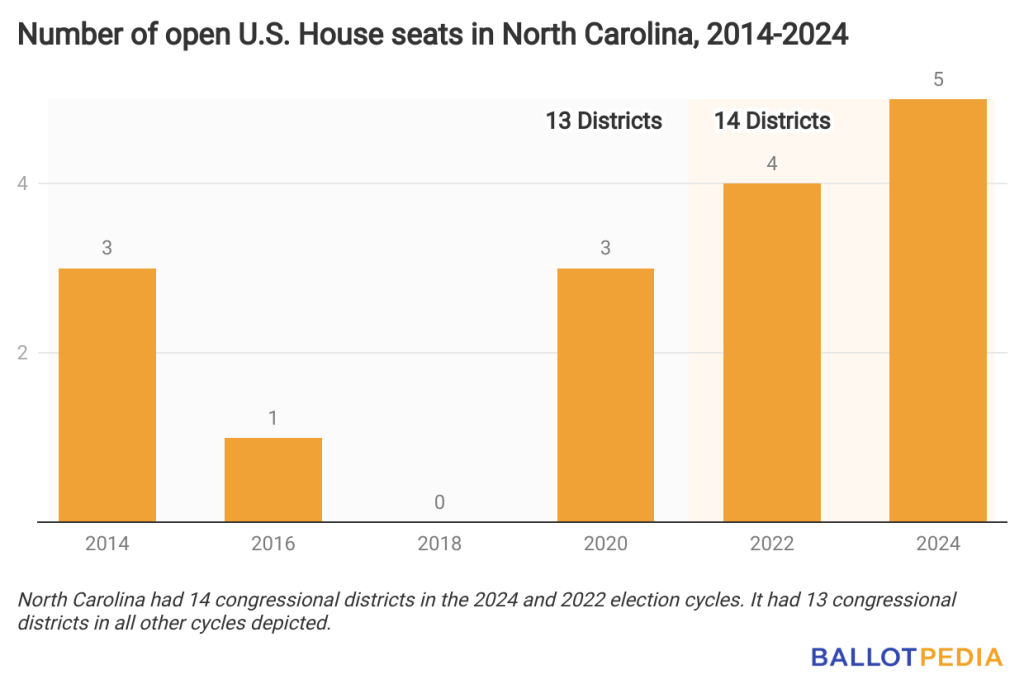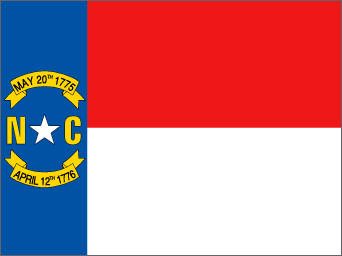This year's filing deadline for candidates running for Congress in North Carolina was Dec. 15, 2023.
Sixty-four candidates are running for North Carolina’s 14 U.S. House districts, including 15 Democrats and 49 Republicans. That’s 4.6 candidates per district, less than the 7.14 candidates per district in 2022, the first election after the number of congressional districts in North Carolina increased from 13 to 14.
In 2020, when the state still had 13 Congressional districts, 4.9 candidates filed to run per district. In 2018, 4.3 candidates filed, and, in 2016, 5.7 did.
Here are some other highlights from this year's filings:
- This is the first election to take place under new district lines that the North Carolina General Assembly adopted on Oct. 25, 2023.
- The 64 candidates running this year are fewer than the 100 who ran in 2022. In 2020, 64 candidates also ran, although North Carolina had one fewer district then. Fifty-six candidates ran in 2018, the decade low.
- Five seats are open this year, one more than in 2022 and a decade high.

- Reps. Jeff Jackson (D-14th) and Dan Bishop (R-8th) are not running for re-election in order to run for state attorney general, while Rep. Patrick McHenry (R-10th) is retiring from public office. Reps. Kathy Manning (D-6th) and Wiley Nickel (D-13th), who are not running for re-election either, cited the partisan lean of their redrawn districts as the reason.
- Fifteen candidates—one Democrat and 14 Republicans—are running for the open 13th district, the most candidates running for a seat this year.
- Thirteen primaries—two Democratic and 11 Republican—are contested this year. That’s fewer than the 20 contested primaries in 2022, and tied with 2020 as the lowest number of contested primaries this decade. As a percentage of all possible primaries (28), the 13 contested primaries this year are the lowest this decade (46%). North Carolina had 13 districts in 2020, making the 13 contested primaries that year 50% of all possible major party primaries.
- Four incumbents—one Democrat and three Republicans—are facing primary challengers this year.
- The 3rd and 6th Congressional districts are guaranteed to Republicans because no Democrats filed to run. Republicans filed to run in every congressional district, meaning none are guaranteed to Democrats.
North Carolina and four other states—Alabama, Arkansas, California, and Texas—are holding primaries on March 5.
In North Carolina primaries, if no candidate receives at least 30 percent of the vote, a runoff election (also referred to as a second primary) can be requested in writing.



